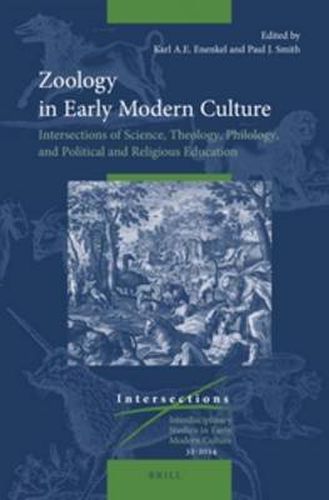Readings Newsletter
Become a Readings Member to make your shopping experience even easier.
Sign in or sign up for free!
You’re not far away from qualifying for FREE standard shipping within Australia
You’ve qualified for FREE standard shipping within Australia
The cart is loading…






This volume tries to map out the intriguing amalgam of the different, partly conflicting approaches that shaped early modern zoology. Early modern reading of the Book of Nature comprised, among others, the description of species in the literary tradition of antiquity, as well as empirical observations, vivisection, and modern eyewitness accounts; the translation of zoological species into visual art for devotion, prayer, and religious education, but also scientific and scholarly curiosity; theoretical, philosophical, and theological thinking regarding God’s creation, the Flood, and the generation of animals; new attempts with respect to nomenclature and taxonomy; the discovery of unknown species in the New World; impressive Wunderkammer collections, and the keeping of exotic animals in princely menageries. The volume demonstrates that theology and philology played a pivotal role in the complex formation of this new science.
Contributors include: Brian Ogilvie, Bernd Roling, Erik Jorink, Paul Smith, Sabine Kalff, Tamas Demeter, Amanda Herrin, Marrigje Rikken, Alexander Loose, Sophia Hendrikx, and Karl Enenkel.
$9.00 standard shipping within Australia
FREE standard shipping within Australia for orders over $100.00
Express & International shipping calculated at checkout
This volume tries to map out the intriguing amalgam of the different, partly conflicting approaches that shaped early modern zoology. Early modern reading of the Book of Nature comprised, among others, the description of species in the literary tradition of antiquity, as well as empirical observations, vivisection, and modern eyewitness accounts; the translation of zoological species into visual art for devotion, prayer, and religious education, but also scientific and scholarly curiosity; theoretical, philosophical, and theological thinking regarding God’s creation, the Flood, and the generation of animals; new attempts with respect to nomenclature and taxonomy; the discovery of unknown species in the New World; impressive Wunderkammer collections, and the keeping of exotic animals in princely menageries. The volume demonstrates that theology and philology played a pivotal role in the complex formation of this new science.
Contributors include: Brian Ogilvie, Bernd Roling, Erik Jorink, Paul Smith, Sabine Kalff, Tamas Demeter, Amanda Herrin, Marrigje Rikken, Alexander Loose, Sophia Hendrikx, and Karl Enenkel.